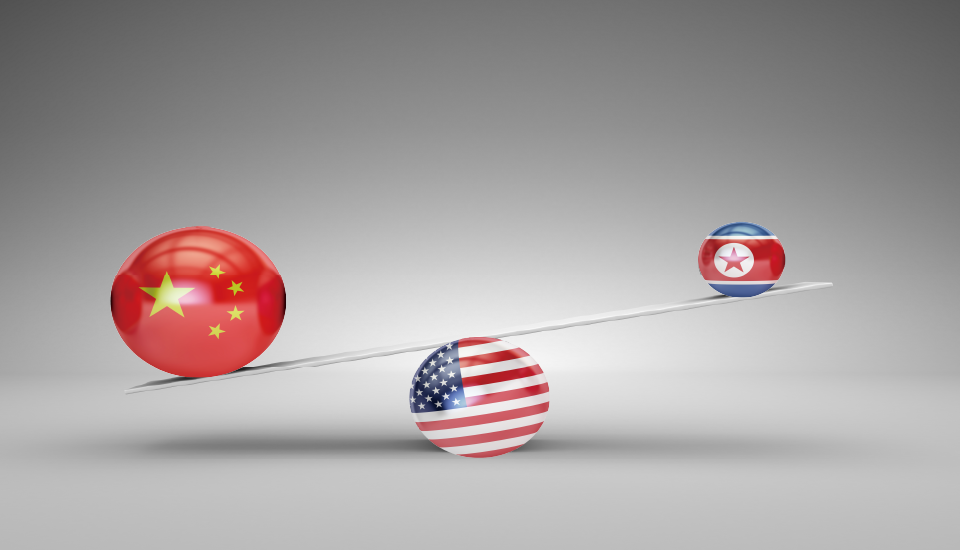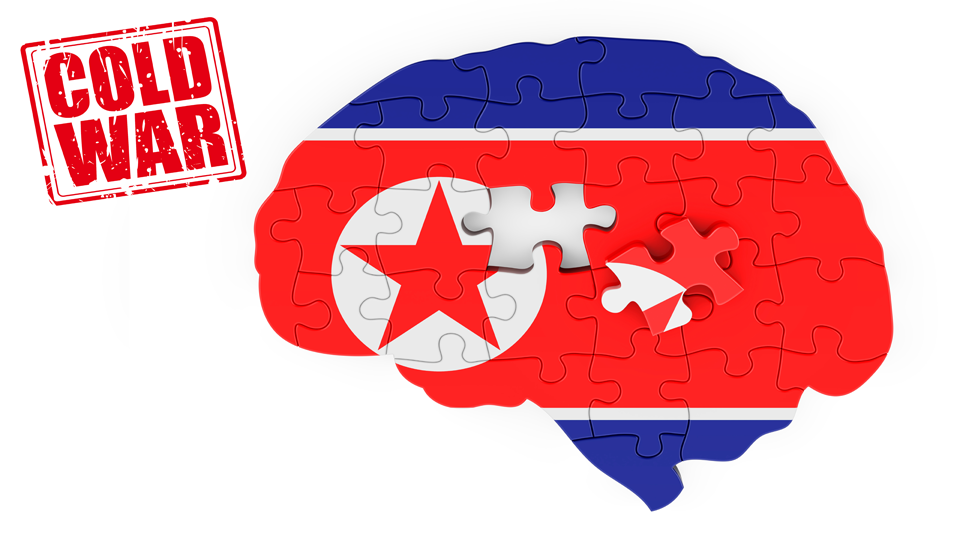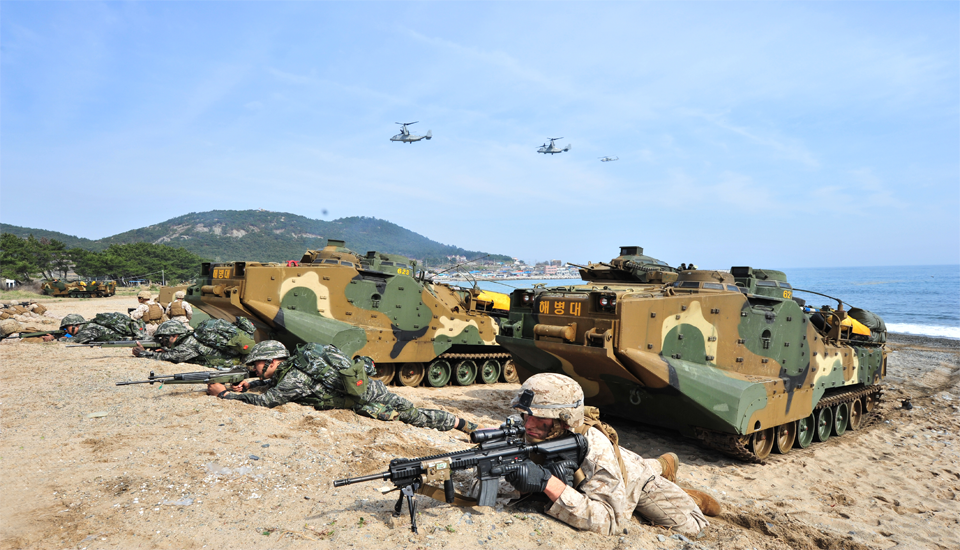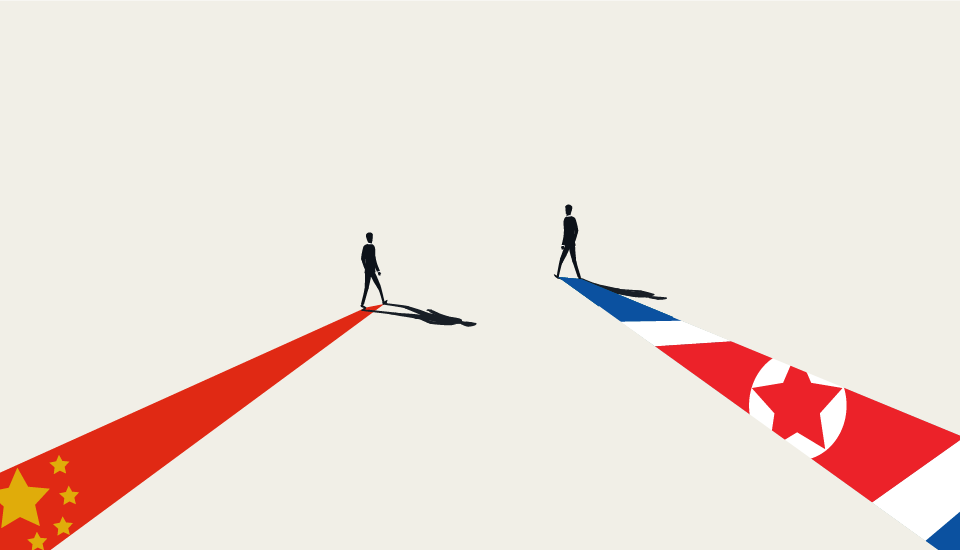
U.S. Stance on North Korea’s “New Cold War” Narrative
Commentary | March 21, 2023
Hyun-wook Kim
Professor at Korea National Diplomatic Academy
Hyun-wook Kim, Professor at Korean National Diplomatic Academy, assesses that North Korea is advocating a new Cold War discourse to strengthen its strategic solidarity with China. However, the intensified Cold War dynamic would lead the United States to prioritize its strategic competition with China, and the Biden administration should turn to a more passive approach toward North Korea. In this context, Dr. Kim anticipates that Washington would not offer incentives to Pyongyang for engaging in dialogue, which would lead Pyongyang to continue its military provocations to influence the direction of Washington’s policy course and gain recognition as a nuclear power. Given the volatility of the situation, Dr. Kim emphasizes the importance of reaffirming the ROK-US military alliance to counter the escalating crisis on the Korean Peninsula.
The Current State of International Affairs
The Biden administration is pursuing a U.S.-China strategic competition. Recognizing that changes within the Chinese Communist Party (CCP) or its overall demise are difficult to achieve, the U.S. is committed to winning a strategic war with China and is undertaking various policy measures to achieve this goal. The core of Biden’s diplomatic policies is for the U.S. to strengthen its alliances through democratic values and to restore its leadership by leading the way for international cooperation. The top diplomatic agenda is for liberal democratic countries to join forces to combat emerging dictatorships by raising human rights issues. The construction of а global supply chain is the Biden administration’s central policy to contain China.
The Biden administration’s containment of China is gradually evolving into a new global Cold War. Recently, the administration began tightening restrictions on its allies to constrain Beijing, such as through the ban on semiconductor exports to China. This ban prohibits U.S. allies’ corporates from expanding their semiconductor industry in China for the next ten years and stipulates the use of U.S. equipment.
The Ukraine war has caused the acceleration of the new Cold War, causing NATO member states to participate in sanctions against Russia and become even more united than before. In contrast, countries in Asia have begun to demand the strengthening of Washington’s expanded deterrence against threats to regional security, expressing doubts about the credibility of extended deterrence by the U.S. against regional security threats from China and North Korea.
North Korea’s Perception of a New Cold War and its Foreign Policies
China’s policy towards North Korea has evolved throughout history. In 2006, China criticized North Korea for its nuclear tests. However, in 2009, after witnessing the strengthening of U.S.-North Korea relations, China began prioritizing its relationship with North Korea over North Korea’s denuclearization. The policy began to shift was due to the United States’ passive intervention in the Asian region. For example, when North Korea conducted its third nuclear test in 2013, China froze its relations with Pyongyang. Around the same time, the Obama administration was focused on stabilizing its domestic economy which was in severe crisis. Now, with the Biden administration pursuing the aggressive containment of China, China is again prioritizing its ties with North Korea over denuclearization. In 2022, China remained silent on North Korean missile launches and blocked sanctions against North Korea at the UN Security Council.
Meanwhile, North Korea has turned to China for economic aid amidst the ongoing COVID-19 crisis and the U.S.-China rivalry. North Korea is pursuing economic policies through self-reliance and increasing its military power as its top priorities. With the recent global decline in coronavirus cases, North Korea has called for economic aid from China and Russia, but the situation has proven difficult. Russia currently does not have the enough capacity to provide economic aid to North Korea due to the ongoing war. Likewise, China has been unable to provide sufficient aid due to its management of domestic economic conditions. As a result, North Korea has placed increasing military strength at the top of its agenda. With no avenues for dialogue with the U.S., North Korea is strengthening its position as a country possessing nuclear weapons by using back channels such as the Nuclear Forces Policy Act and China’s support.
U.S. Foreign and North Korea Policies
The top priority of the Biden Administration is the containment of China. Regarding its strategic competition with China, Washington’s new document maintains that the post-Cold War era has ended and that the U.S.-China rivalry is ultimately a competition between democracy and autocracy. Furthermore, Washington identifies China as the only competitor with the intention and capacity to reshape the current international order. Additionally, Russia is perceived to be an acute threat to allies and friendly nations, and Washington maintains that both China and Russia are attempting to establish a new international presence based on authoritarian regimes that are deeply personalized and oppressive.
The U.S. classifies North Korea. as a “violent extremist group” and a “persistent threat.” In its Nuclear Posture Review (NPR), Washington indicates that North Korea is a growing threat and cautions that a crisis in the Korean Peninsula could lead to a regional war involving nuclear powers. It also states that if North Korea were to launch a nuclear attack, it would mean the “end of a regime.” Washington has made it clear that there is no possibility of survival for the Kim Jong Un regime if it utilizes nuclear weapons and that the U.S. is committed to preventing the transmission of nuclear technology by North Korea. The U.S. will continue to pursue diplomatic measures with Pyongyang to advance the goal of the complete denuclearization of the Korean Peninsula; however, it will also strengthen the expanded deterrence against North Korea’s weapons of mass destruction and missile threats.
Currently, the U.S. evaluates that North Korea is strengthening its ties with China in light of a new Cold War. As China is a top priority of the U.S., Washington’s North Korea policies are very passive. Washington further maintains that in the absence of a solution for the denuclearization of North Korea, it will strengthen deterrence against North Korean provocations through cooperation among South Korea, the U.S., and Japan. Therefore, Washington places China as the most critical threat and is building the South Korea-U.S.-Japan trilateral cooperation as a basis to address the threat posed by China. In this context, the U.S. emphasizes integrated deterrence in its national military strategy and deters North Korean threats by pursuing the U.S. forward posture and integrated air and missile defense.
Considerations for South Korea
Despite escalating provocations from North Korea, the U.S. refuses to offer any incentives or engage in talks with the country. The U.S. no longer considers North Korea a significant counterpart that it must cautiously approach. As the U.S. and China enter a new Cold War, North Korea’s only potential strategy is to exploit the crisis and attempt to alter the current state of affairs. Consequently, peace and security on the Korean Peninsula will likely deteriorate, and South Korea must establish a robust response system with the U.S. to prepare for the crisis.■
■ Hyun-wook Kim is currently Professor and Director-General at Korea National Diplomatic Academy. His research areas include US-ROK alliance, US-DPRK relations and Northeast Asian security. He was an advisory member for the 20th Korean Presidential Inauguration Preparation Committee in which he has written President’s inaugural speech. He is now a policy advisory member for the National Security Council, a non-resident director for Korea Foundation, and a policy advisor for the Joint Chiefs of Staff. He has finished his Ph.D. and M.A. in political science from Brown University, and worked at the University of Southern California as a postdoctoral fellow. He received his B.A. in political science from Yonsei University.
■ Typeset by Junghoo Park, Research Associate; Che Yeon Kim, Intern
For inquiries: 02 2277 1683 (ext. 205) | jhpark@eai.or.kr
Security and External Relations

North Korea’s Outlook on the New Cold War
Won Gon Park | 09.March.2023

Will Spring Ever Come? Security Landscape of Northeast Asia in 2023
Kyung-joo Jeon | 06.March.2023

China’s Stance on North Korea’s “New Cold War” Narrative
Dong Ryul Lee | 27.February.2023
LIST